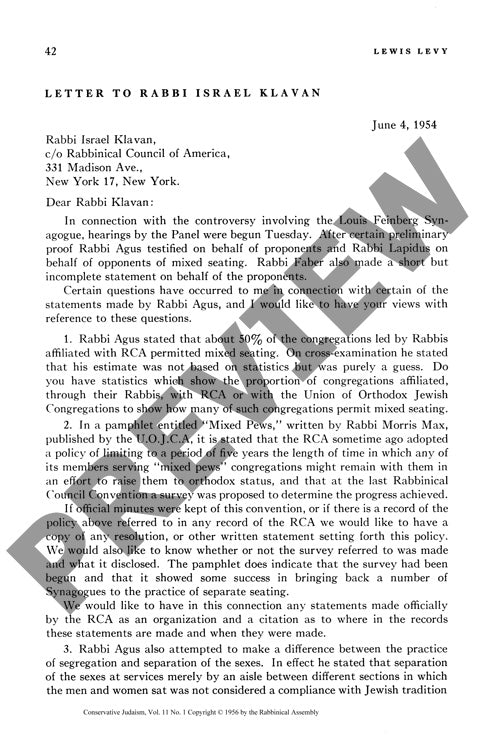Communications
Couldn't load pickup availability
A landmark 1954 legal battle over mixed-gender seating at the Louis Feinberg Synagogue exposed deep rifts within American Orthodox Judaism, challenging fundamental questions of religious authority and traditional practice. Through extensive correspondence between attorney Lewis Levy and Rabbi Israel Klavan of the Rabbinical Council of America, along with rabbinical testimonies and legal arguments, the controversy centered on whether abandoning gender-separated seating violated the synagogue's constitutional commitment to "forms and traditions of Orthodox Israelites." Leading authorities Rabbi Joseph Soloveitchik and Rabbi Eliezer Silver drew crucial distinctions between "separation" (seating apart without physical barrier) and "segregation" (seating with mechitza/partition), maintaining that while segregation represented optimal Orthodox practice, separation satisfied basic halakhic requirements. Mixed seating, they argued, fundamentally violated Torah law. Rabbi Jacob Agus offered competing testimony supporting "liberal Orthodox" interpretation, arguing that American Conservative Judaism's approach to socio-historical adaptation constituted legitimate Orthodox practice. Analysis of primary source documents including letters, rabbinical opinions, and legal summations reveals significant discord within Orthodox leadership regarding acceptable practice boundaries and religious authority. The case exemplifies how mid-twentieth century American Orthodox Judaism navigated questions of denominational boundaries and adaptation to American social norms while attempting to maintain traditional authenticity, with lasting implications for synagogue governance and constitutional interpretation.

More Information
-
Physical Description
-
Publication Information
Published 1956
ISBN
-
Publication Credits

